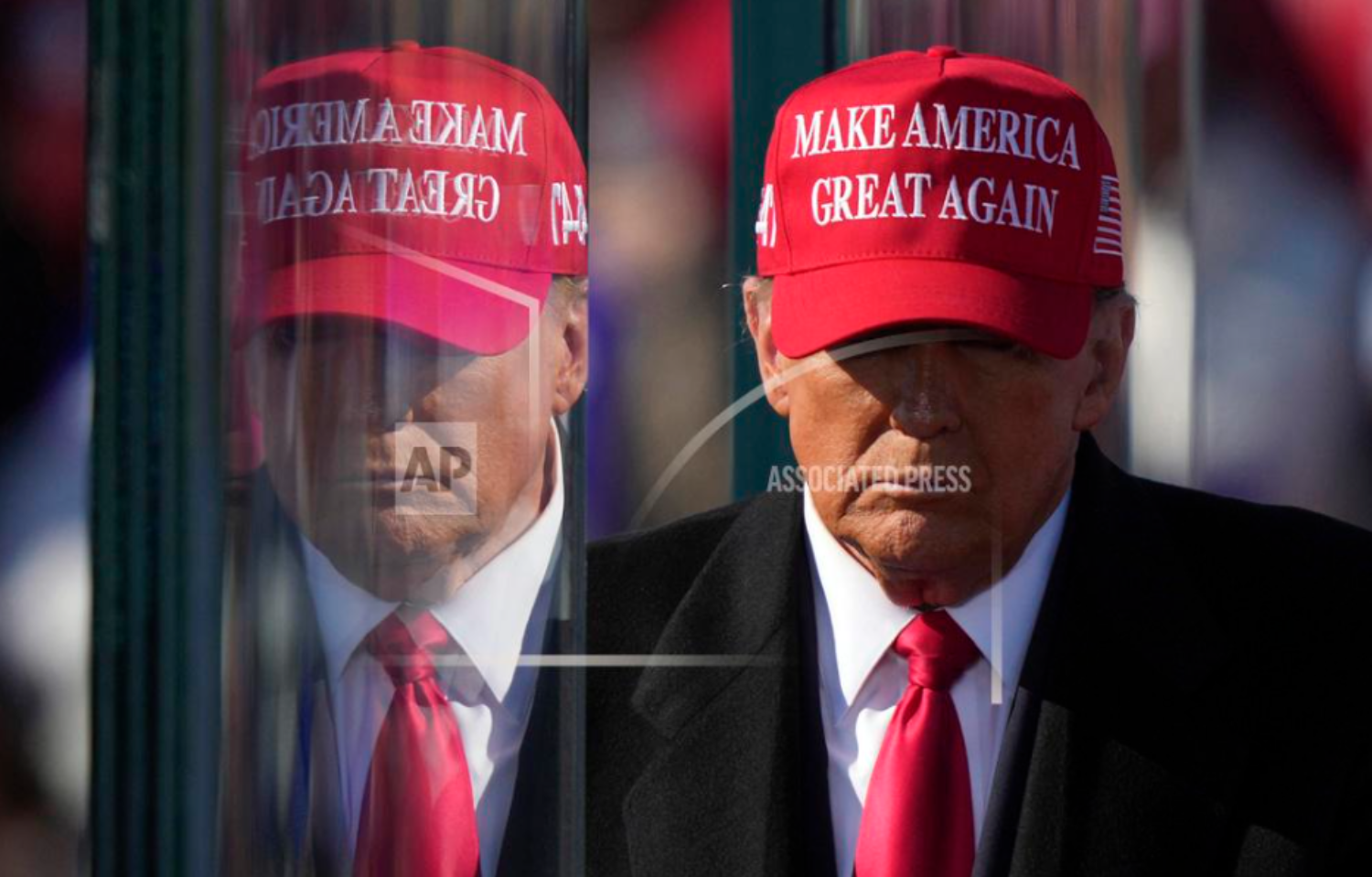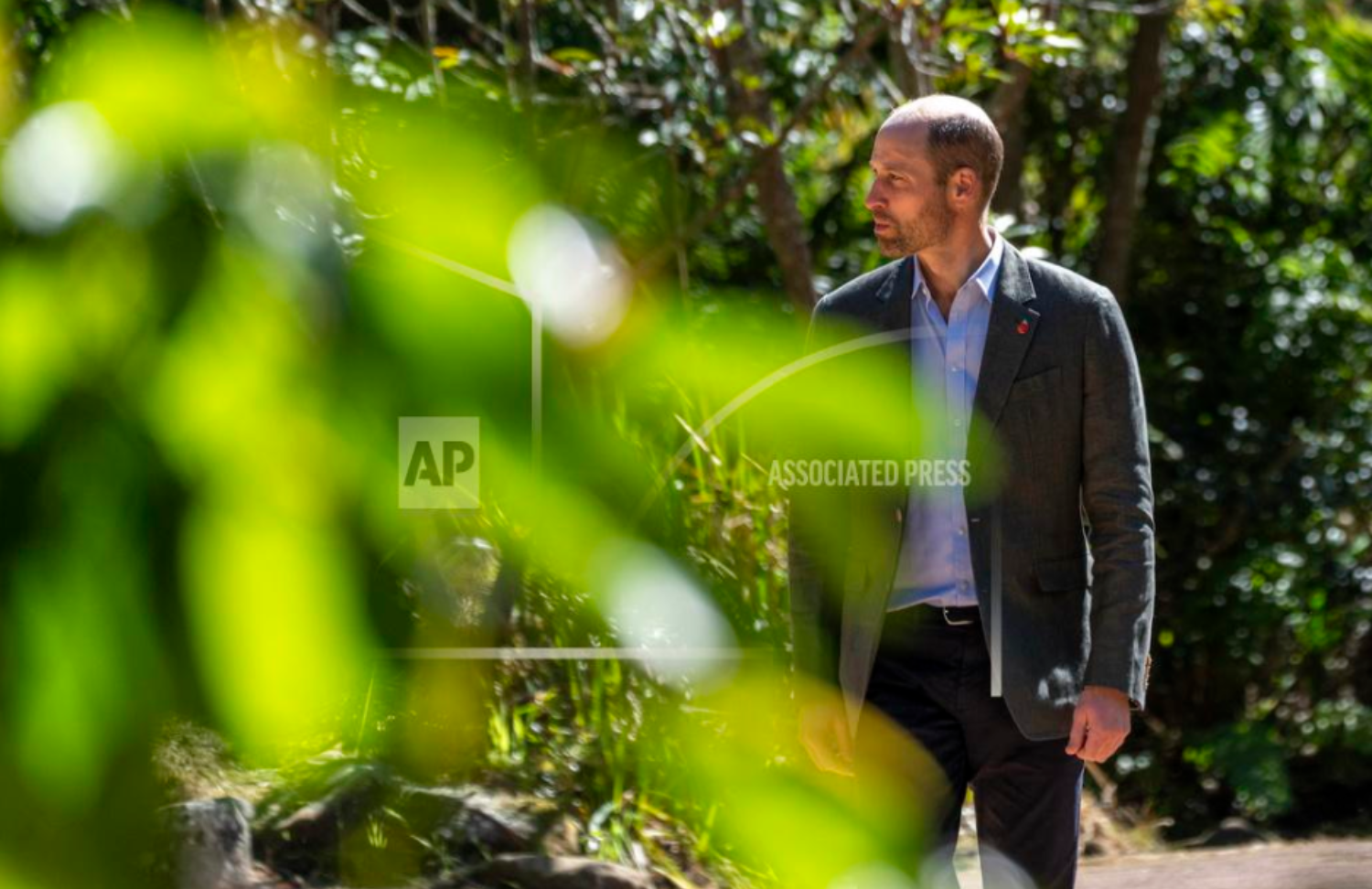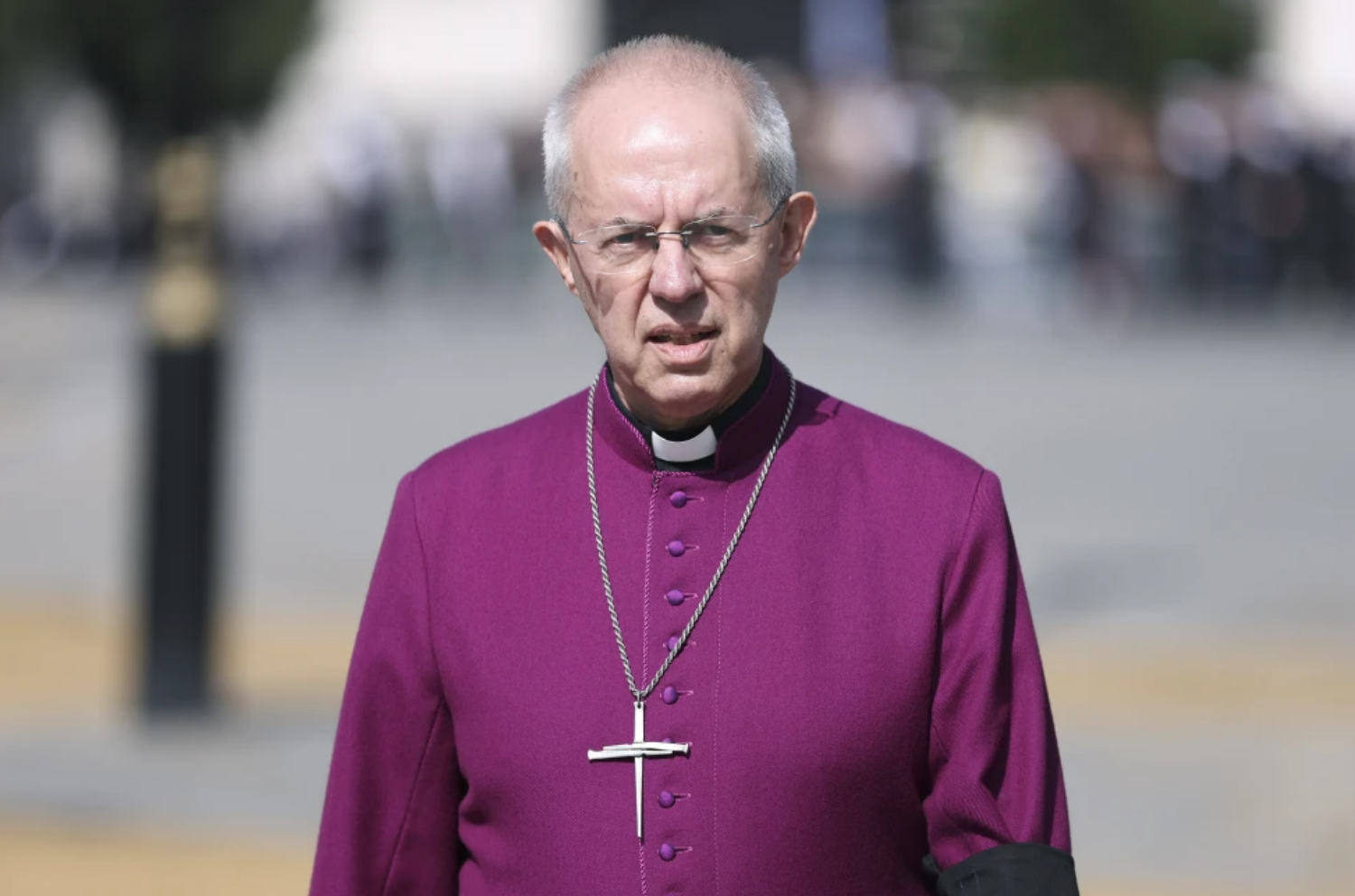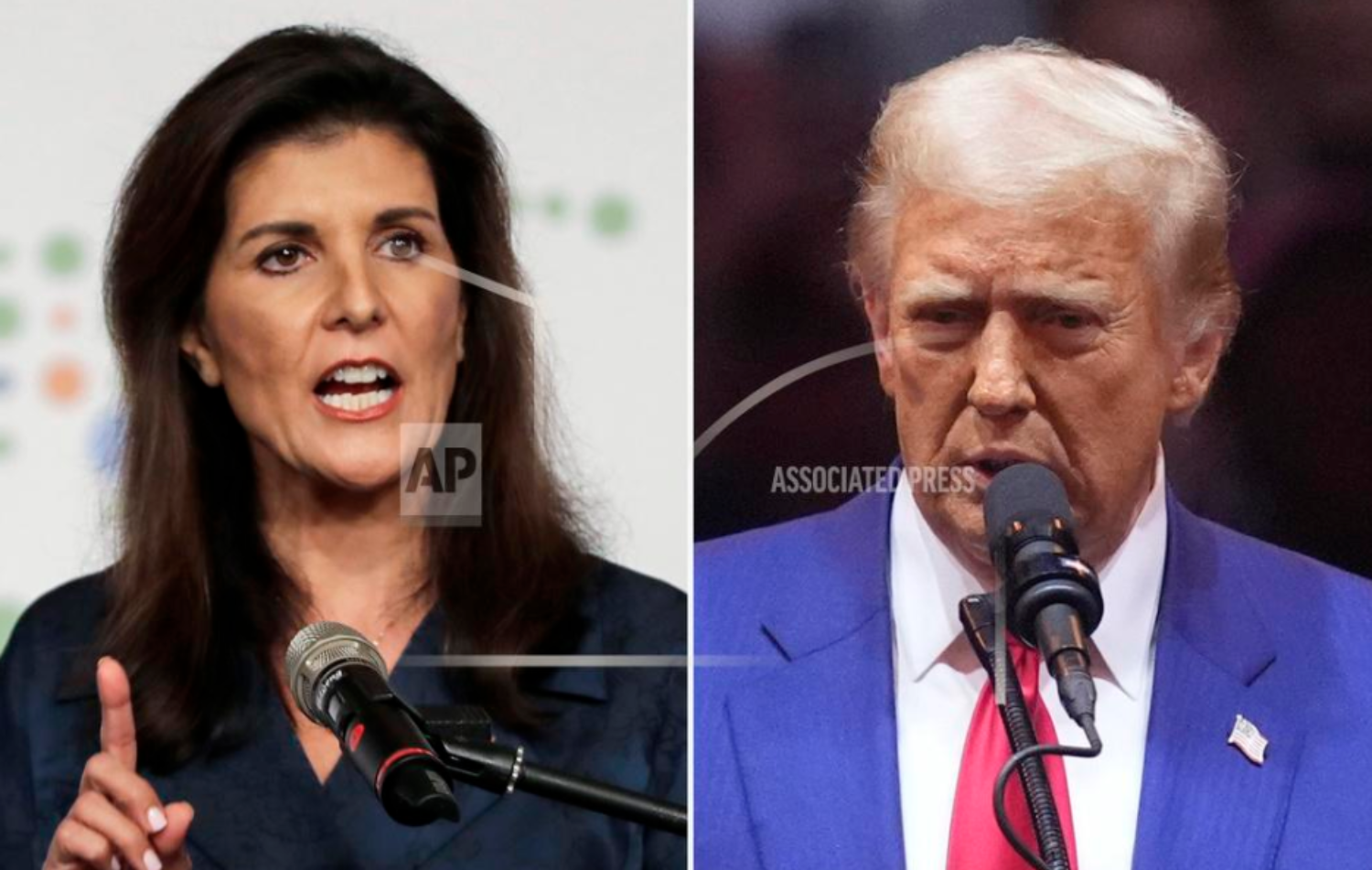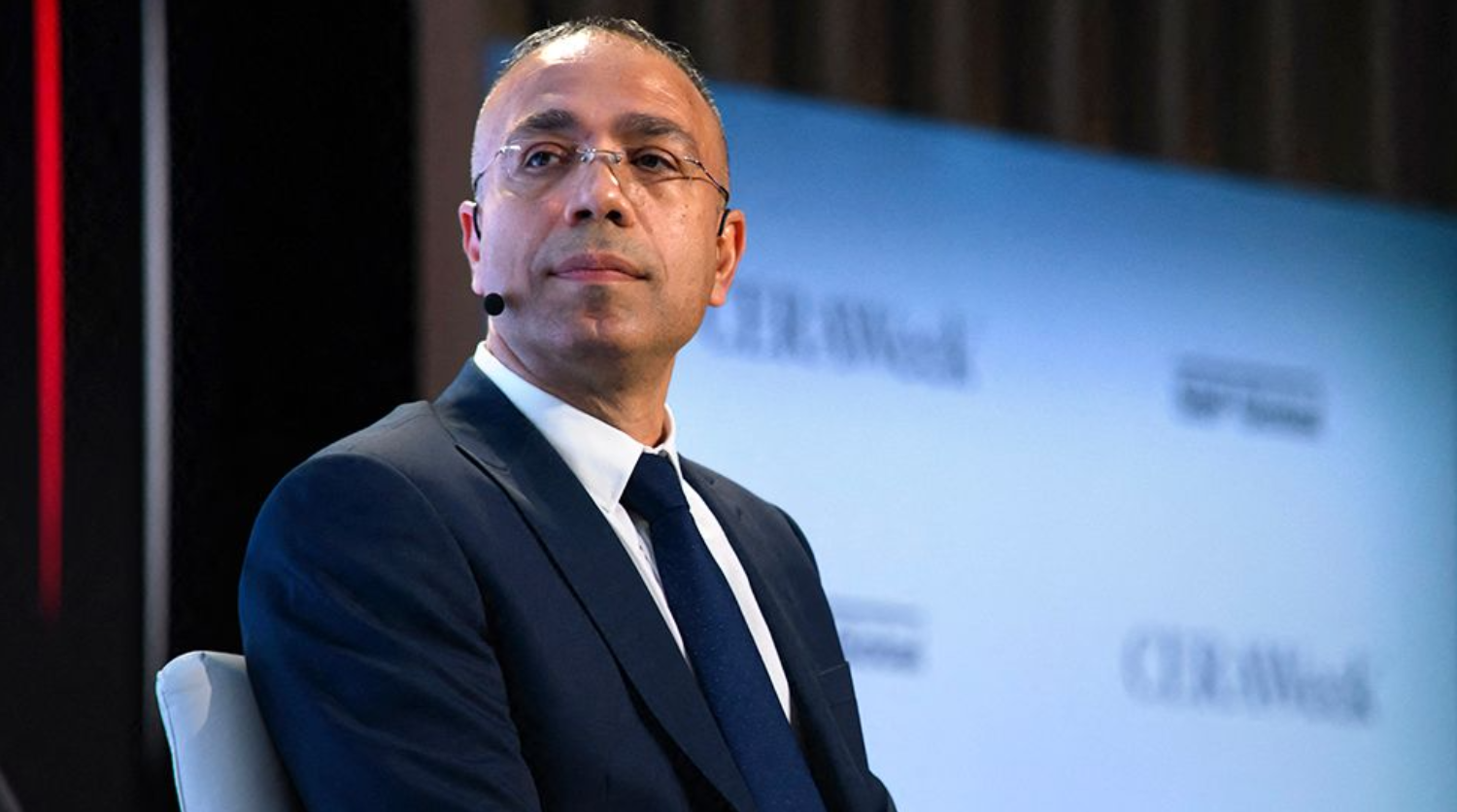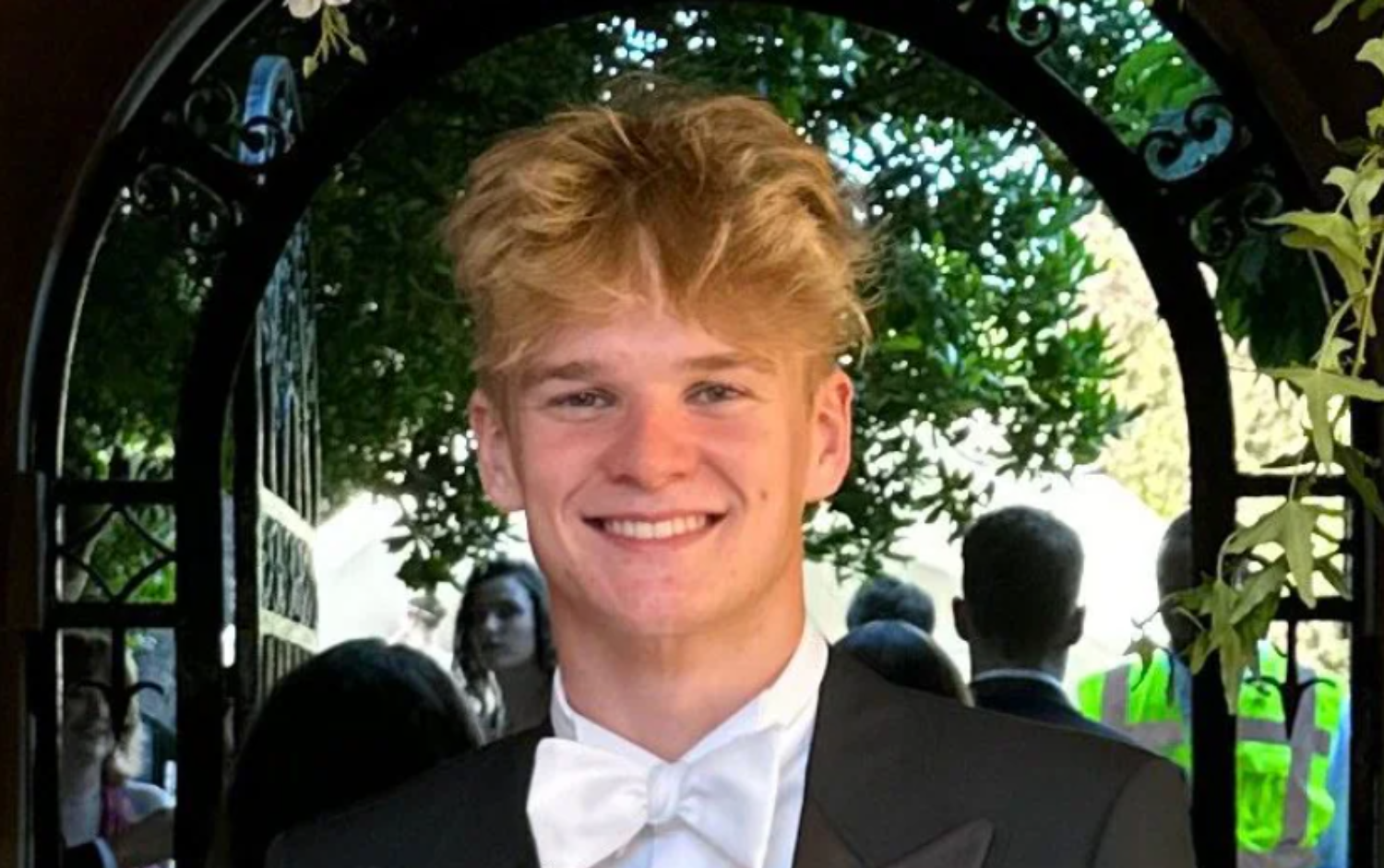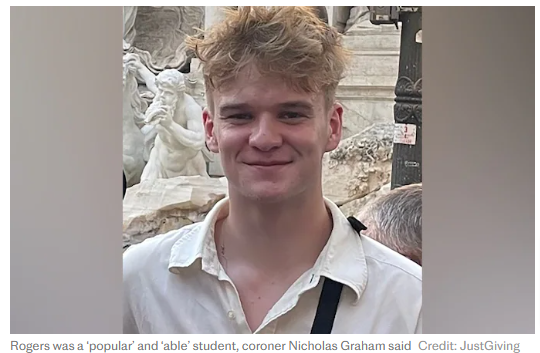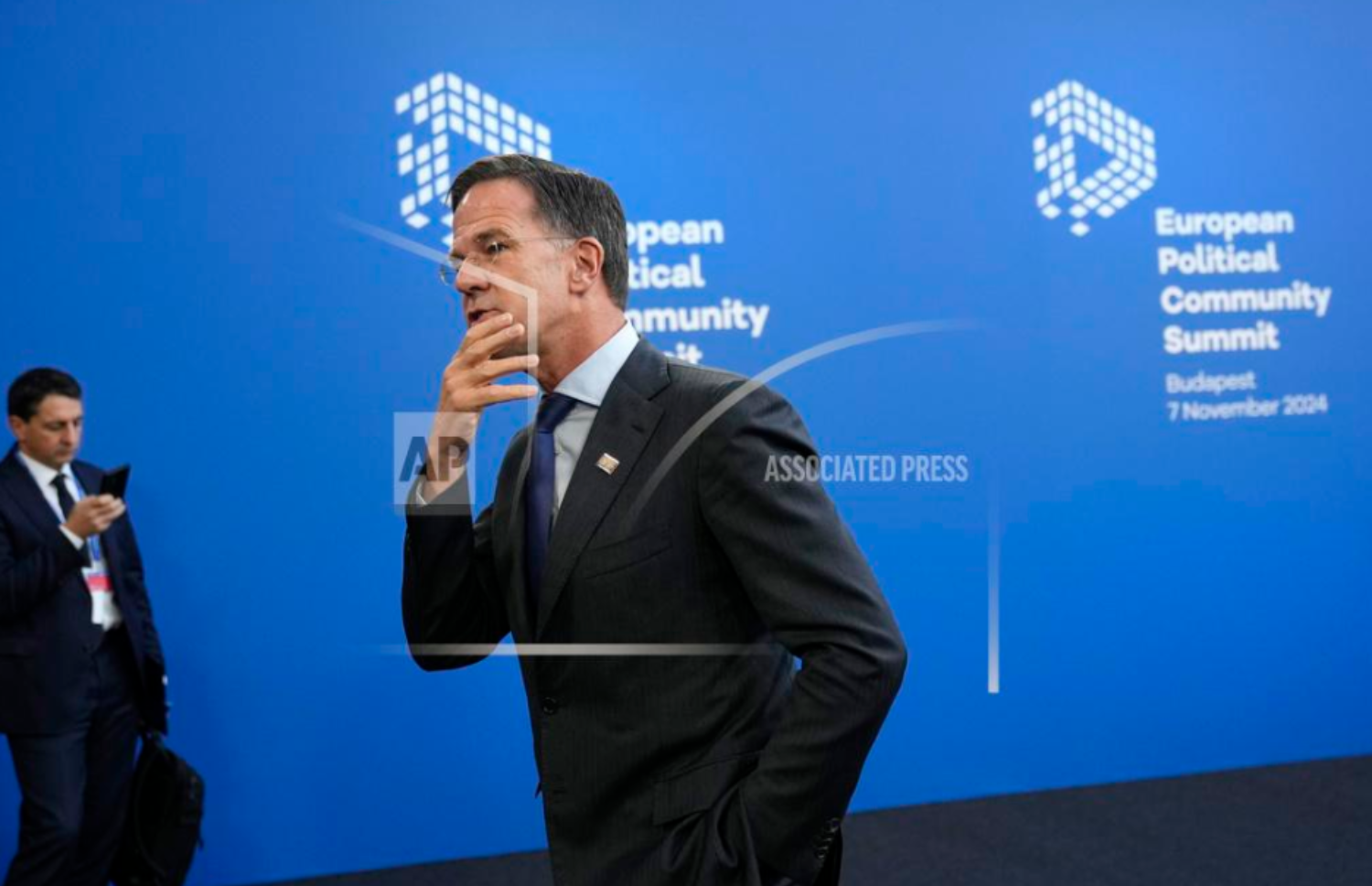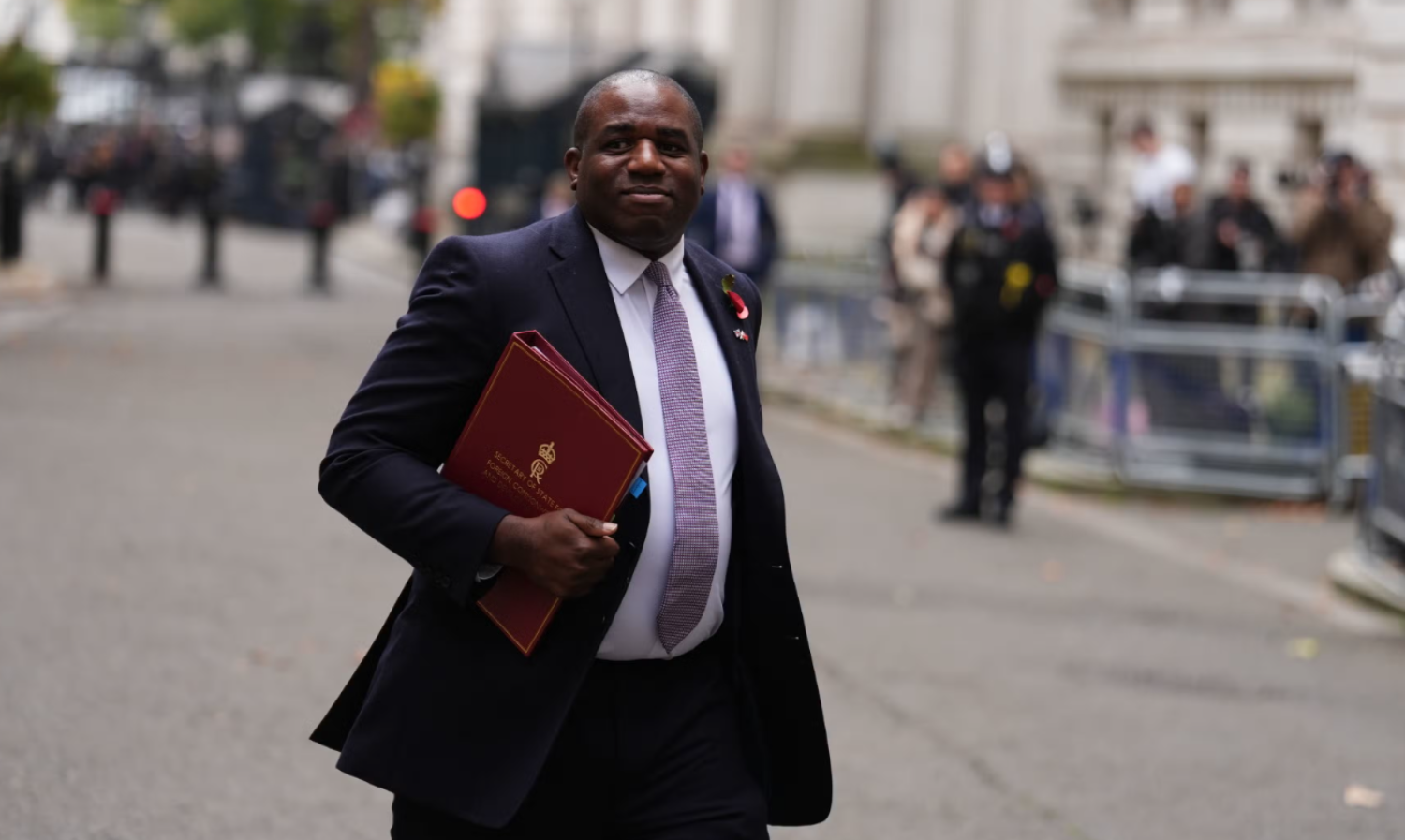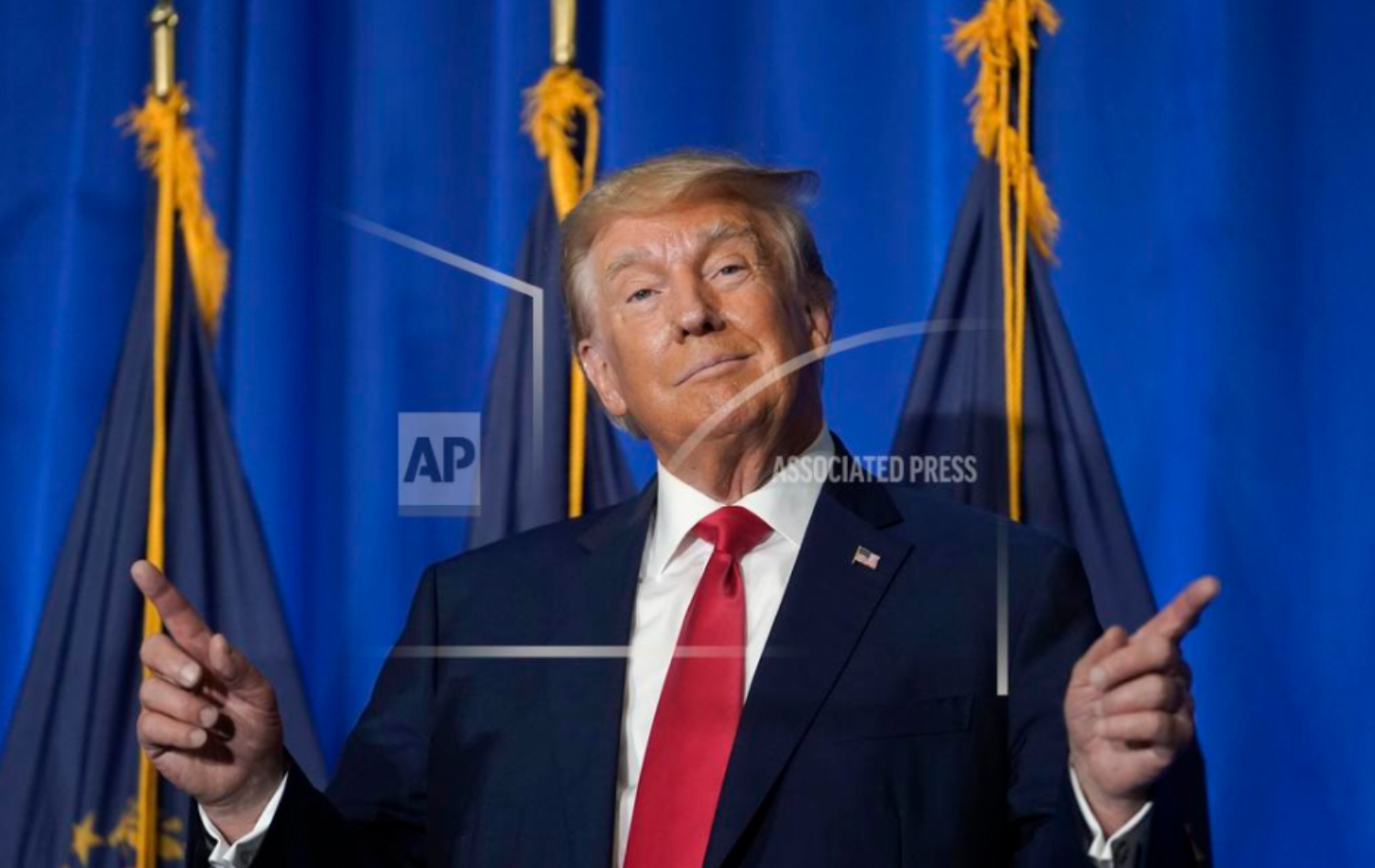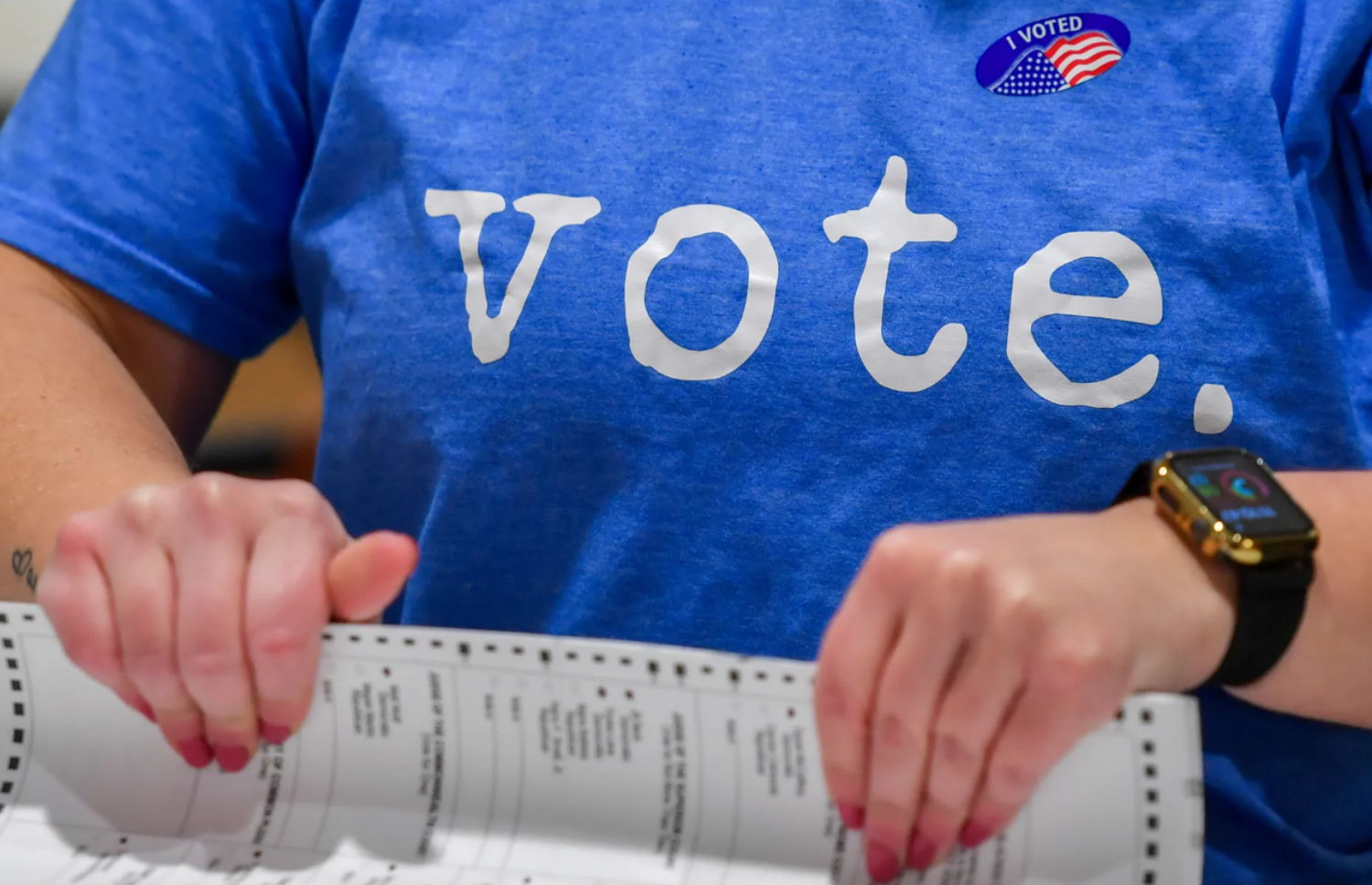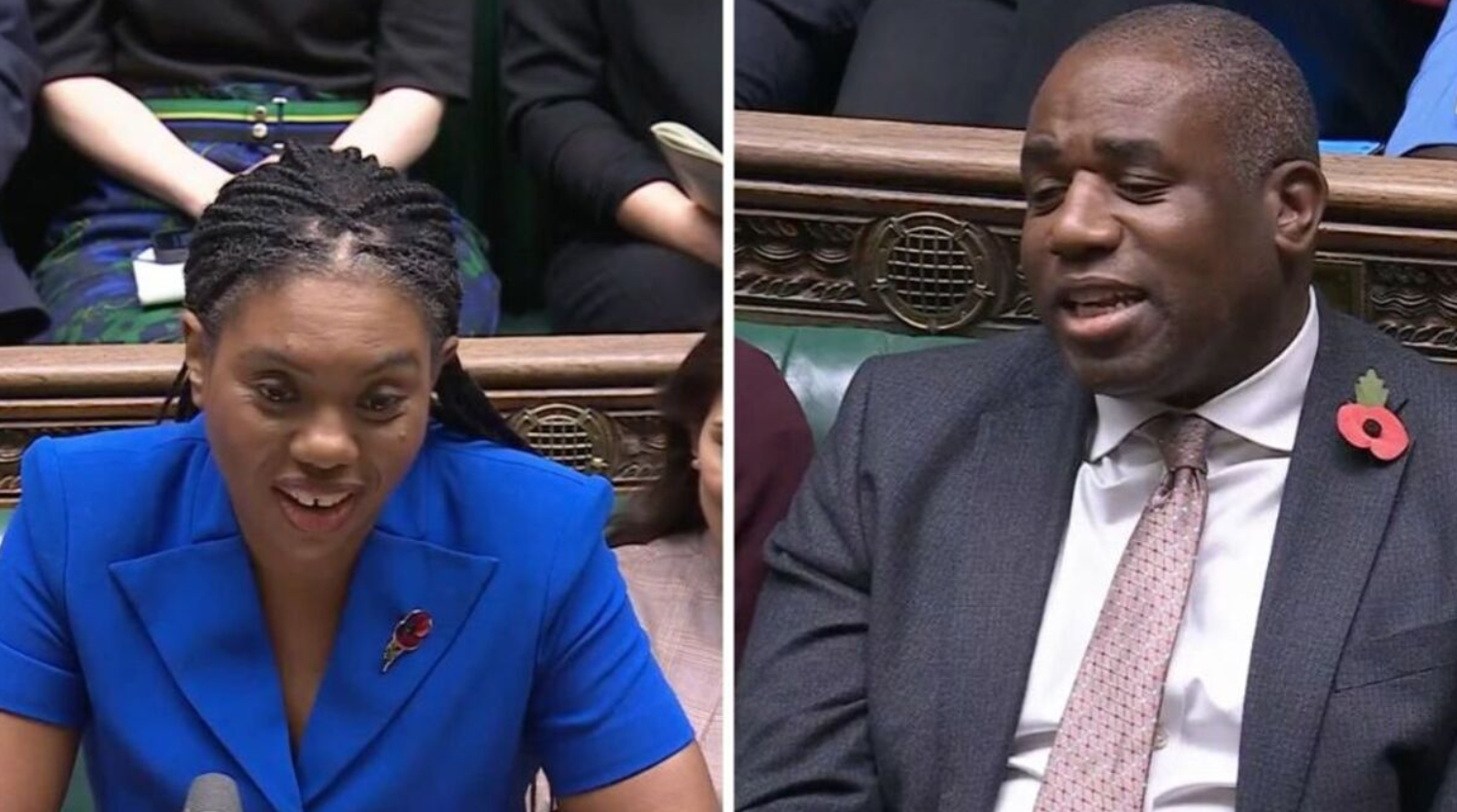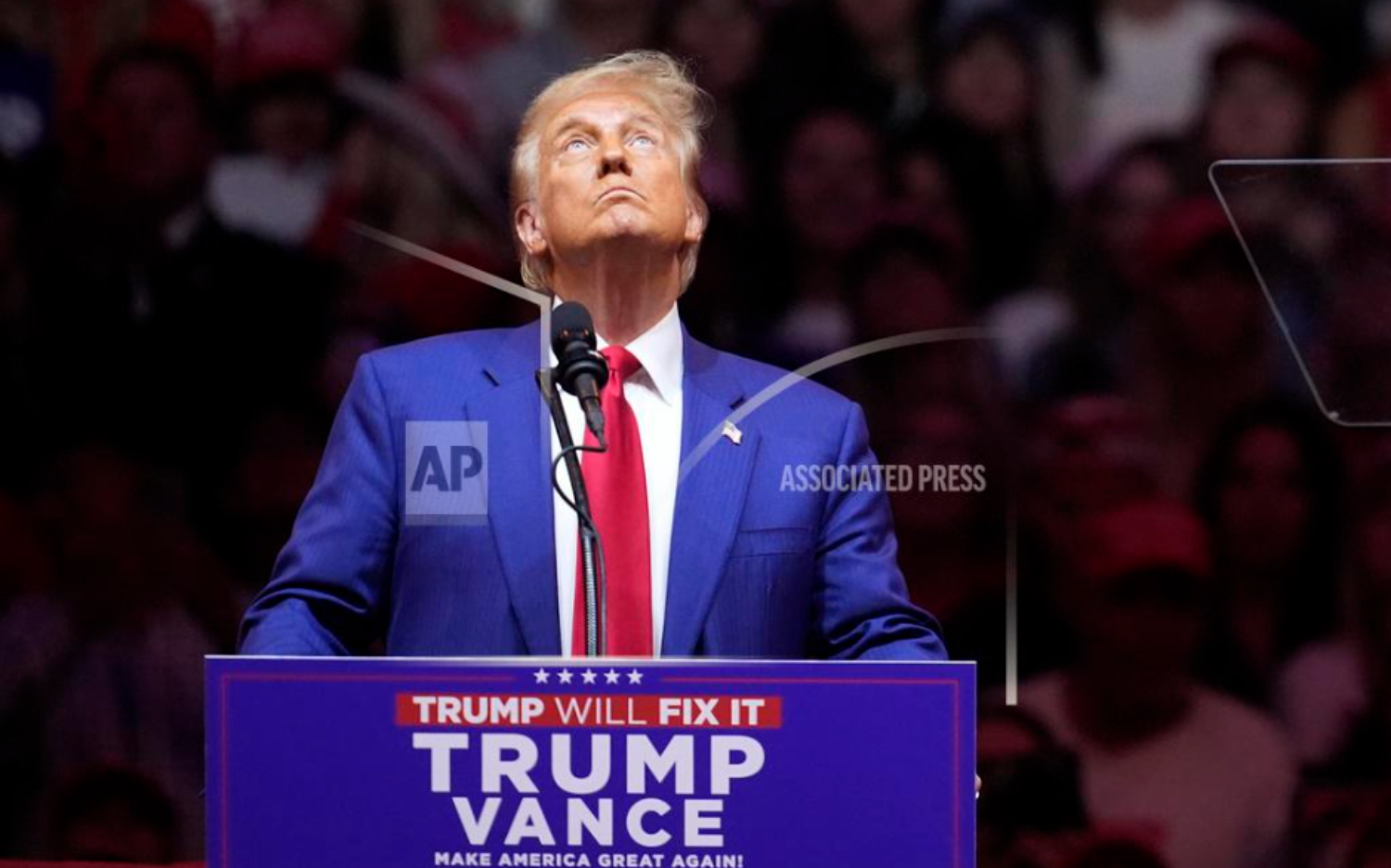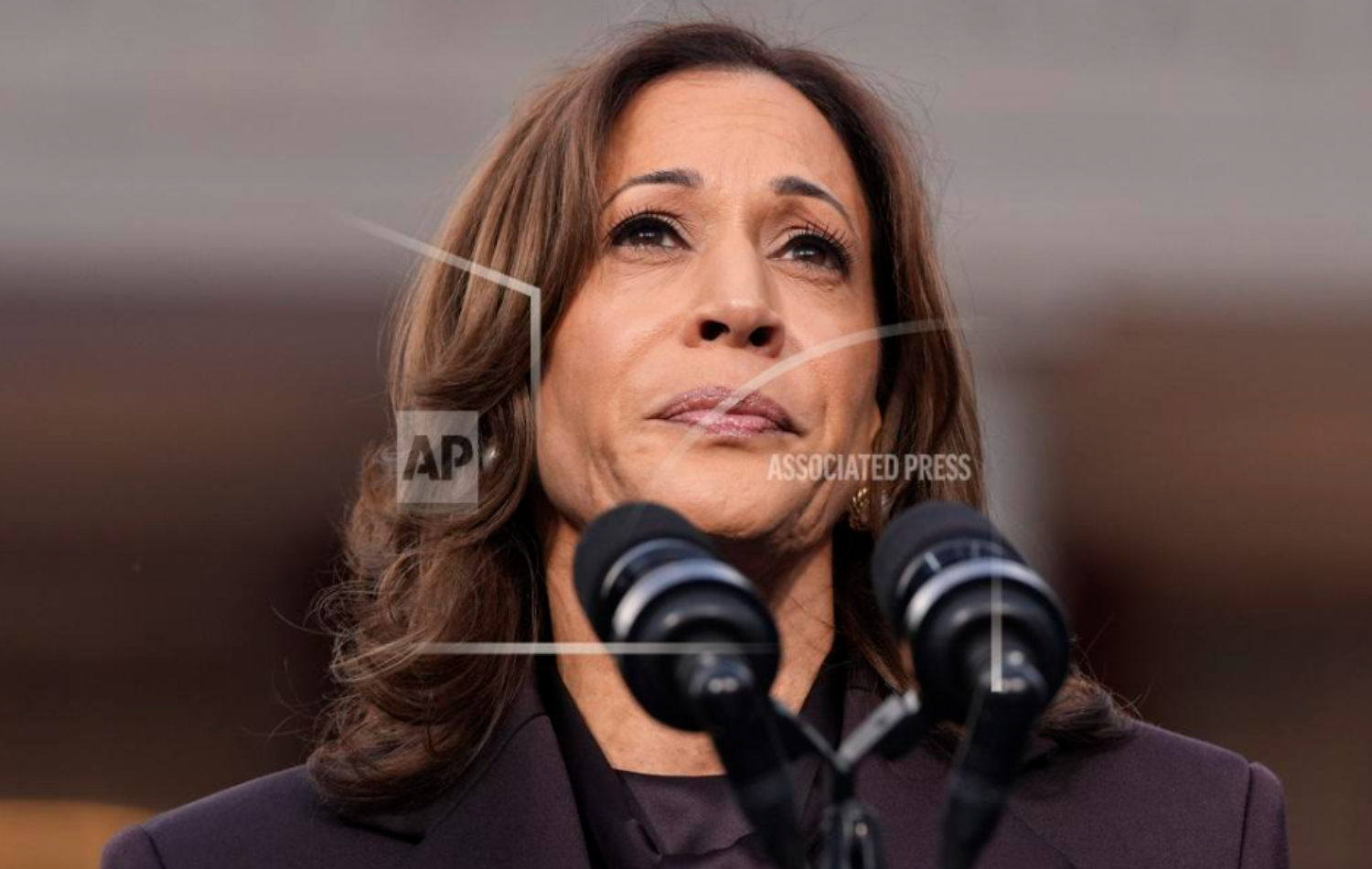-
Posts
10,090 -
Joined
-
Last visited
Content Type
Events
Forums
Downloads
Quizzes
Gallery
Blogs
Everything posted by Social Media
-
The U.S. government has charged an Iranian national, Farhad Shakeri, in connection with an alleged plan to assassinate Donald Trump. In an indictment unsealed by the Department of Justice, Shakeri, 51, is accused of being directed by an Iranian Revolutionary Guard official to develop a strategy to surveil and kill Trump. Prosecutors revealed that Shakeri has not been apprehended and is currently believed to be in Iran. Attorney General Merrick Garland stated, “The Justice Department has charged an asset of the Iranian regime who was tasked by the regime to direct a network of criminal associates to further Iran’s assassination plots against its targets, including President-elect Donald Trump.” The indictment alleges that Shakeri’s orders to formulate an assassination plan came in September. Initially, he informed Iranian officials that he did not intend to devise a plan within their requested seven-day timeline, prompting the officials to postpone their directive. Shakeri later claimed that his contacts within the Iranian government believed it would be simpler to attempt the assassination following the election, under the assumption that Trump would lose. In addition to Trump, two other individuals—Carlisle Rivera, 49, and Jonathon Loadholt, 36—have been charged in connection with the case. The two men were allegedly recruited by Shakeri to target an American journalist who has publicly criticized Iran. The journalist, identified by Brooklyn-based reporter Masih Alinejad as the intended victim, reported that the FBI intervened to arrest two men for attempting to kill her outside her home. “I came to America to practice my First Amendment right to freedom of speech—I don’t want to die,” she stated on social media, adding, “I want to fight against tyranny, and I deserve to be safe.” Prosecutors revealed that Shakeri’s orders extended beyond Trump and Alinejad. Allegedly, the Iranian government also sought to kill two Jewish American businesspeople in New York who supported Israel on social media. Shakeri also claimed that his Iranian contacts had requested a plan for a mass shooting to target Israeli tourists in Sri Lanka, allegedly planned for October 2024. Shakeri’s background includes a 14-year prison sentence for robbery before his deportation in 2008. Since then, prosecutors allege he has used a network of criminal associates to conduct surveillance on Iran’s targets. Shakeri reportedly promised Rivera and Loadholt $100,000 to murder the targeted American journalist. All three men now face charges of murder-for-hire, money laundering conspiracy, and conspiracy to commit murder-for-hire, which carry potential sentences ranging from 10 to 20 years in prison. Based on a report by BBC 2024-11-09
-
Sainsbury's, one of the UK’s largest supermarket chains, is facing significant financial challenges following recent budget measures that will add a £140 million burden to its operating costs. Chief Executive Simon Roberts warned that this increase, stemming from the hike in employers' national insurance contributions, is likely to lead to further inflation and potentially tough choices for the company. Roberts noted the financial strain that the increased national insurance contributions will impose, saying, "This impact on national insurance was unexpected and is coming in fast, it will have a very significant impact, it will impact our costs base... and our suppliers' cost base." This unexpected financial weight will come into effect in April, following Chancellor Rachel Reeves' announcement in last week’s budget. The Sainsbury’s CEO expressed concerns about the inflationary impact of these new costs, noting that they are beyond what the company can absorb. "There’s a barrage of costs," he said, highlighting that Sainsbury’s customers might ultimately bear the financial brunt of these changes. Roberts pointed to the analysis of the Office for Budget Responsibility (OBR), an independent forecaster, which suggested that Reeves’ budget measures will drive inflation higher than originally anticipated. "It’s difficult to disagree with" the OBR’s assessment, Roberts added. In addition to the national insurance increase, the new budget also raised the national minimum wage, another factor contributing to overall cost increases. While Roberts did not put a specific number on how much these changes would inflate prices, he acknowledged the growing pressure, saying, "There’s a lot of pressure in the pipeline... there’s pressure in the system in inflation already." Roberts expressed disappointment over the budget's impact on business rates as well. Many businesses had anticipated a reduction in these rates, but instead, they are now expected to rise next year. Roberts commented, "Business rates will go up this year. I certainly didn’t expect them to go up next year; I expected them to go down." As for the potential impact on Sainsbury’s workforce, Roberts stated that it is "too early to be specific," but he acknowledged that "difficult decisions" would likely have to be made. Although he did not elaborate on whether these decisions could involve staffing changes, he hinted that the combination of rising national insurance, minimum wage costs, and other pressures may lead to unavoidable adjustments in operations. Sainsbury’s is not alone in dealing with the implications of the new budget. Other major UK companies have reported similar concerns. JD Wetherspoon, the pub chain with more than 1,000 establishments, announced that the budget measures would increase its costs by £60 million next year. Marks & Spencer, another prominent UK retailer, expects to see a £120 million impact on its finances. These announcements highlight the widespread concerns across the retail and hospitality sectors, which are grappling with the same financial pressures as Sainsbury’s. Based on a report by Sky News 2024-11-09
-
Prince William has candidly described the past year as "brutal" and "probably the hardest year in my life" after both his father, King Charles, and his wife, the Princess of Wales, were diagnosed with cancer. In a rare and open interview concluding his tour in Cape Town, the Prince of Wales reflected on the emotional toll these challenges have taken, sharing insights into how his family has coped with these profound hardships. He expressed particular pride in Kate, calling her “amazing” and sharing that she is “doing well.” This praise for Kate reflects his gratitude for her strength and resilience as they navigate this challenging period together. Over the year, both King Charles and the Princess of Wales have periodically stepped back from their royal duties to focus on their health, which has added more responsibilities to William’s role. As the heir to the throne, William has taken on additional engagements, often attending events solo and fulfilling obligations that his father and wife were unable to manage. The Prince acknowledged the pressures he’s experienced but also shared his feelings about his evolving role as Prince of Wales. He explained, “It’s a tricky one. Do I like more responsibility? No. Do I like the freedom that I can build something like Earthshot? Then yes.” Prince William’s honesty in this interview provides a rare glimpse into his personal life, marking the first time he has openly discussed the impact of his father’s and wife’s health on his own well-being. While he continues to balance his public duties with family obligations, his reflections reveal the complex emotions he is facing as he supports his loved ones. In his words and demeanor, it’s clear that William remains deeply committed to his family and to the causes he champions, even as he endures one of the most challenging periods of his life. Based on a report by Sky News 2024-11-09
-
An independent review has exposed that the Church of England concealed “horrific” abuses committed by John Smyth, a lawyer and church volunteer, who inflicted physical, sexual, psychological, and spiritual abuse on children and young adults at Christian summer camps during the 1970s and 1980s. Despite learning of these abuses in 2013, the ceremonial head of the Anglican Communion failed to report Smyth’s actions to authorities, allowing the abuse to remain hidden until much later. The review, released on Thursday, details the findings in a 251-page report commissioned by the church. Smyth, who died in South Africa in 2018, is considered the most prolific serial abuser ever linked to the church. Over five decades, he targeted approximately 30 boys and young men in the United Kingdom and around 85 in Africa. According to Keith Makin, who led the review, “Many of the victims who took the brave decision to speak to us about what they experienced have carried this abuse silently for more than 40 years.” Makin further criticized the church, saying, “Despite the efforts of some individuals to bring the abuse to the attention of authorities, the responses by the Church of England and others were wholly ineffective and amounted to a coverup.” Smyth’s role as a volunteer leader at the Iwerne camps—a series of Christian camps associated with the Church of England and intended to train young men from prestigious schools for future leadership—gave him access to vulnerable young people. He used his position to manipulate campers, punishing them for what he defined as “sins” such as “pride,” making sexual remarks, masturbation, or, in one instance, simply looking at a girl for too long. According to the report, these punishments involved violent beatings in which both Smyth and his victims were often partly or fully naked. The report chillingly describes the extent of Smyth’s punishments, noting, “The scale and severity of the practice was horrific.” Instances included beatings of 100 strokes for masturbation, 400 for pride, and even one of 800 strokes for an unspecified “fall.” A minister secretly documented these abuses in 1982, yet no police report was ever filed. One church official, the late Rev. David Fletcher, defended his silence by saying, “I thought it would do the work of God immense damage if this were public.” Smyth eventually left the United Kingdom, moving to Zimbabwe with his family, with the encouragement and financial assistance of church officials who knew of his abusive actions. The report condemned these officials, stating, “Church officers knew of the abuse and failed to take the steps necessary to prevent further abuse occurring.” In 2013, another opportunity to report Smyth’s crimes emerged. Church leaders, including the Archbishop of Canterbury, Justin Welby—who himself had attended Iwerne camps and knew Smyth—were informed of the past abuse. However, as the report outlines, they chose not to alert authorities, missing a critical chance to prevent any further harm. Welby later acknowledged his personal failure to act, stating, “Nevertheless the review is clear that I personally failed to ensure that after disclosure in 2013 the awful tragedy was energetically investigated.” Had the church reported Smyth at that time, the report suggests, law enforcement might have been able to bring him to justice. “In effect, three and a half years was lost, a time within which John Smyth could have been brought to justice and any abuse he was committing in South Africa discovered and stopped,” the report concludes. Public awareness of Smyth’s abuses did not emerge until a 2017 Channel 4 investigation, which finally prompted Hampshire Police to launch an inquiry. Authorities had planned to question Smyth and were preparing for a possible extradition before his death later that year. The report underscores a painful truth: had action been taken earlier, many victims might have been spared years of suffering, and the church might have avoided the lasting stain of complicity in a tragedy it helped to conceal. Based on a report by AP 2024-11-09
-
Donald Trump previously supported the United Kingdom’s claim over the Chagos Islands, a position that could disrupt Sir Keir Starmer’s recent deal to transfer control of the islands to Mauritius. During Trump’s last term as U.S. president, his administration filed a legal document backing Britain’s stance that the international courts should not intervene in the sovereignty dispute over the archipelago, according to information revealed by *The Telegraph*. The U.S. government’s legal support for the UK during Trump’s administration is a strong indication that he may oppose the current Labour plan to relinquish British control of the islands to Mauritius. The Chagos Islands hold strategic importance for both the United States and the UK, as they are home to an American military base on Diego Garcia, the largest island in the chain. Mike Pompeo, Trump’s former Secretary of State, previously emphasized that UK control of Diego Garcia was vital for maintaining U.S. military operations in the area. Nigel Farage, leader of the Reform UK party and an ally of Trump, noted that individuals close to the former president-elect are critical of Labour’s plan to cede the islands. The situation has led to speculation that Trump could oppose the deal, with two former UK Foreign Office officials telling *The Telegraph* they anticipate Trump may publicly contest it. The transfer of sovereignty to Mauritius, which Starmer announced in early October, remains in a legally uncertain phase as the treaty necessary to formalize the change is still under negotiation. The deal is an “agreement in principle,” and some senior Republicans in the U.S. have voiced concerns that the handover could empower China in the region. This cautionary perspective has been echoed by prominent UK officials, including Robert Buckland, former justice secretary and head of the UK’s case at the International Court of Justice (ICJ). Reflecting on the potential impact of Trump’s return, Buckland expressed hope that Trump would reconsider Starmer’s arrangement. He stated, “Along with many other countries, the previous Trump administration steadfastly and rightly opposed Mauritius’s use of the ICJ to resolve what is a sovereignty dispute. I hope that the new administration will come to our aid.” The fate of the Chagos Islands remains uncertain, as the legal process to solidify the change has yet to be completed. If Trump voices opposition to the deal upon assuming office, the future of Starmer’s agreement with Mauritius could be in jeopardy, adding a layer of complexity to the UK’s foreign policy in the Indian Ocean region. Based on a report by Daily Telegraph 2024-11-09
-
Former Republican White House candidate Nikki Haley has urged both sides of the political spectrum, as well as corporate and government institutions, to take the recent election results as a critical “wake-up call.” With her former primary rival, President-elect Donald Trump, defeating Vice President Kamala Harris, Haley emphasized the need for reflection and recalibration within the spheres of politics, business, and governance. Haley’s endorsement of Trump was a notable turn in her campaign narrative. Though she had been one of Trump’s more outspoken critics on the campaign trail, she ultimately chose to endorse him after dropping out of the race. This decision raised questions about her stance, but Haley has since voiced her support for his candidacy, positioning herself as a pragmatic figure willing to back the Republican cause in hopes of advancing the party’s overall goals. The former South Carolina governor’s remarks add to a broader dialogue within the Republican Party about how best to address national divides and strengthen the party’s appeal to a wider audience. Haley’s call for a return to a more centrist approach suggests her desire to attract a broader base while addressing concerns about an increasingly polarized political climate. For Haley, the recent election isn’t just a Republican victory—it’s a potential moment of reckoning for all players, from corporate leaders to political strategists, as they consider the way forward. Based on a report by the Hill 2024-11-09
-
Akheel Khan, a 24-year-old engineering graduate with first-class honors, has been sentenced to 15 months in prison after being caught on CCTV wielding a hammer and roaming Middlesbrough streets with a gang during summer riots. The footage shows Khan and two associates, armed with metal poles, searching residential areas, evidently in pursuit of those responsible for damaging Khan's car. Khan appeared in Teesside Crown Court, where he pleaded guilty to violent disorder. His solicitor, Michele Turner, requested leniency on behalf of her client, explaining that Khan had been a victim of the riots himself, with his car damaged in the chaos. She urged the judge to consider suspending his sentence, pointing out that Khan’s job in Sheffield was being held open for him. According to Turner, Khan had stayed behind at the mosque after prayers that day, discussing with others what actions they might take if the mosque were attacked. It was only minutes later that he discovered his car had been damaged, which led him to seek those responsible. Despite these considerations, Judge Richard Bennett handed down a 15-month prison sentence, noting the severity of the charge. Under this sentence, Khan will serve 40 percent of his term before being released on license. Based on a report by Daily Telegraph 2024-11-09
-
A senior official leading the COP29 climate conference in Azerbaijan has reportedly used his position to facilitate a meeting about fossil fuel investment opportunities, according to a BBC investigation. A secret recording reveals Elnur Soltanov, the chief executive of Azerbaijan's COP29 team, discussing “investment opportunities” with a man posing as a prospective investor interested in Azerbaijan’s state-owned oil and gas company, Socar. “We have a lot of gas fields that are to be developed,” Soltanov is heard saying in the recording. This development has sparked criticism, with a former head of the UN body responsible for climate talks condemning Soltanov’s actions as “completely unacceptable” and calling it a “betrayal” of the COP process. Along with leading COP29, Soltanov also serves as Azerbaijan’s deputy energy minister and holds a position on Socar’s board, further complicating the optics of his involvement. Despite multiple inquiries from the BBC, neither Azerbaijan’s COP29 team nor Socar has issued a statement on the matter. Currently, oil and gas contribute to roughly half of Azerbaijan’s economy and over 90% of its exports, according to U.S. data. COP29, scheduled to open in Baku on Monday, is the 29th annual UN climate summit, intended as a platform for global leaders to strategize on limiting climate change and enhancing global climate ambitions. This revelation marks the second consecutive year that the host government of COP has been implicated in controversial behavior. Last year, leaked documents exposed plans by the UAE, which hosted COP28, to leverage the summit for securing oil and gas agreements. The latest claims against Azerbaijan stem from documents and covert video recordings obtained by the human rights organization Global Witness, which involved a representative posing as the head of a fictitious Hong Kong-based investment firm focused on energy. According to reports, the fake company offered to sponsor COP29 but expressed interest in discussing investment opportunities with Socar in exchange. During a virtual meeting, Soltanov explained that the primary goal of COP29 was to address the climate crisis and work toward a “just, orderly, and equitable” transition from hydrocarbons. However, he also invited discussions on oil and gas deals, stating, “There are a lot of joint ventures that could be established.” Soltanov explained that Socar trades oil and gas globally, including in Asia, and described natural gas as a “transitional fuel,” noting, “We will have a certain amount of oil and natural gas being produced, perhaps forever.” In the recording, Soltanov expressed his willingness to facilitate discussions, telling the supposed investor, “I would be happy to create a contact between your team and their team [Socar] so that they can start discussions.” Shortly after, the fake company received a follow-up email from Socar indicating interest in pursuing the opportunity. The idea of striking business deals during COP events is widely seen as a violation of the ethical standards expected of COP officials. These gatherings are designed to focus on strategies to reduce fossil fuel reliance—the primary driver of climate change—rather than promoting fossil fuel investments. The BBC also reviewed emails exchanged between the COP29 team and the fake investors. In one thread, officials discuss a potential $600,000 sponsorship deal with the fictitious company in exchange for an introduction to Socar and participation in an event titled “sustainable oil and gas investing” at COP29. The BBC sought comments from both Azerbaijan’s COP29 team and Socar, but neither responded. As the world faces urgent calls to reduce greenhouse gas emissions, revelations like these add to concerns about the integrity of the COP process and the commitment of host nations to advancing global climate goals. Based on a report by BBC 2024-11-09
-
An Oxford University student, Alexander Rogers, took his own life after facing a wave of social isolation and backlash following an allegation, an inquest at Oxford Coroner’s Court revealed. The 20-year-old’s body was discovered in the Thames in January, and his death has since raised questions about the impact of “cancel culture” on mental health within academic communities. At the inquest on Wednesday, Coroner Nicholas Graham concluded that the allegation and subsequent social exclusion led Rogers to decide to end his life. Days before his death, Rogers, a student at Corpus Christi College, faced an accusation from a former relationship partner, which led many of his friends and peers to sever ties with him. This sudden isolation left Rogers “distraught,” the court heard, as he faced ostracism from a community he had once been close to. According to Dr. Dominique Thompson, an independent consultant who examined the events surrounding his death, Rogers became a target of a “pile-on” effect among students who felt an “unwritten” obligation to “do the right thing.” She remarked on the severity of his isolation, stating, “It was shocking to hear that students were treating each other in this way, but I was not surprised by this pattern of behavior.” The incident unfolded just as Rogers had been looking forward to returning to his studies after winter break. Instead, he became socially isolated, which had a devastating impact on his mental health. Rogers was reported missing by a concerned friend on January 15, and his body was recovered by police and fire crews later that day. The cause of death was determined to be a severe head injury. The student’s family expressed their grief in a statement shared by the coroner, describing the profound toll the events took on their son’s mental state. They said, “For the student, the rational became the irrational, and he ended what could have been a beautiful life.” Rogers’s friends remembered him as the “epitome of what is good in this world,” commemorating his life with a fundraising marathon for a suicide prevention charity. Coroner Graham extended his condolences to the family, noting, “Alexander was an extremely able and popular young man, and his passing is sad indeed.” In response to Rogers’s death, a spokesperson for Oxford University and Corpus Christi College offered their sympathies to his family, emphasizing their commitment to student welfare. “The college commissioned an independent review to identify all learning in this case with the aim of minimizing the chance of such a tragic loss happening again. The wellbeing of our students remains our absolute priority, and we are committed to maintaining the safety of all those within our university and college community.” The college added that Rogers was known for his “vibrant presence” across campus, noting his involvement in the Junior Common Room, the boat club, and his cohort in Materials Science. “Whilst the loss of any young life is tragic, we have felt Alexander’s death particularly keenly.” Based on a report by Daily Telegraph 2024-11-09
-
NATO allies should prepare for a significant increase in defense spending, according to NATO Secretary-General Mark Rutte, who backed U.S. President-elect Donald Trump’s call for members to invest more in their own security. Trump has consistently advocated for NATO countries to move beyond the current target of 2 percent of GDP for defense spending, even suggesting in 2018 that this contribution be doubled to 4 percent. Rutte, acknowledging the validity of Trump’s stance, stressed the necessity of these increases during the European Political Community summit in Budapest, stating, “We will have to spend more ... It will be much more than the 2 percent. I’m clear about that.” During Trump’s first term in office, he frequently criticized European countries for falling short of their defense commitments, accusing them of relying too heavily on the United States for their security. In a rare agreement with Trump, Rutte affirmed, “He is right about this. You will not get there with the 2 percent.” Rutte’s support for increased contributions aligns with the sentiments of several NATO members who now recognize the need for bolstered military spending, especially since Russia’s full-scale invasion of Ukraine in 2022, which has heightened security concerns across Europe. A few countries, such as Germany, have recently made notable strides in ramping up military expenditures, overcoming historical reluctance. Meanwhile, Poland and the Baltic nations have already committed upward of 4 percent of their GDP to defense, citing the threat posed by Russian aggression. This shift represents a broader movement across NATO as more countries aim to meet or exceed the alliance’s minimum spending target. In 2014, only three NATO members fulfilled the 2 percent requirement, yet by 2023, that number had increased to 23 countries, a notable step forward in shared responsibility within the alliance. Momentum for higher defense spending continues to build. The United Kingdom has pledged to reach 2.5 percent of GDP on defense within this decade, marking a substantial increase in its commitment. This evolving perspective was further emphasized by Andrius Kubilius, the incoming EU Defense and Space Commissioner, who stated during his European Parliament confirmation hearing, “We need to discuss — but that is perhaps for NATO, we can ask NATO to discuss — [whether] the 2 percent target [is] enough. From my point of view, it is not enough.” Rutte’s comments ahead of his anticipated meeting with Trump in Budapest underscore a new chapter in U.S.-European defense relations. “I look forward to [sitting] down with Donald Trump to discuss how to face these threats collectively,” he remarked, signaling a readiness for transatlantic dialogue on bolstering collective defense efforts. Based on a report by Politico 2024-11-09
-
Elon Musk’s estranged daughter, Vivian Jenna Wilson, has announced her plans to leave the United States following the re-election of President-elect Donald Trump. Wilson, who severed ties with her father in 2022, made her feelings clear in a recent post on Threads, expressing her concerns over the future political climate and her disappointment with the support Trump received. “I’ve thought this for a while, but yesterday confirmed it for me. I don’t see my future being in the United States,” she wrote. Acknowledging that Trump’s term could last only four years, she added, “Even if the anti-trans regulations magically don’t happen, the people who willingly voted this in are not going anywhere anytime soon.” In a revealing interview with NBC News, Wilson described Musk as “cold” and “cruel,” recounting painful memories from her childhood that highlighted their troubled relationship. She recalled one specific incident during a road trip, which she later learned was intended as an advertisement for one of Musk’s cars. “I was in fourth grade… and he was constantly yelling at me viciously because my voice was too high,” she remembered. These moments, according to Wilson, defined Musk as “very quick to anger” and as having an “uncaring and narcissistic” nature. Wilson also took issue with Musk’s claim that he was “tricked” into approving her trans-related medical treatments as a teenager. She refuted his assertions, stating, “He was not by any means tricked. He knew the full side effects.” These accusations and counter-accusations have cast a shadow over their relationship, which, according to Wilson, has seen little to no communication over the past four years. As she contemplates leaving the country, Wilson’s decision is fueled by both personal and political motivations. Her move underscores her desire to establish an independent identity far from the shadow of one of the world’s wealthiest men. While Musk’s influence continues to shape industries, Wilson’s journey represents a stark divergence from her father’s path. Based on a report by NYP 2024-11-09
-
Foreign Secretary David Lammy has downplayed his past criticisms of Donald Trump, calling them "old news" and emphasizing his ability to find "common ground" with the president-elect. This marks a significant shift from his prior statements, where he described Trump in harsh terms. As a backbench MP in 2018, Lammy referred to Trump as a "tyrant" and a “woman-hating, neo-Nazi-sympathising sociopath." Yet, following Trump’s recent election victory, Lammy has publicly acknowledged the president-elect as "someone that we can build a relationship with in our national interest." In an interview with the BBC’s *Newscast* podcast, Lammy commended Trump’s campaign, stating, “I felt in my bones that there could be a Trump presidency.” When asked about his previous statements, he shrugged them off as a thing of the past, pointing out that one would “struggle to find any politician” who hadn’t made similar remarks about Trump. Lammy argued that there is a difference between what a politician might say as a backbencher and how they act in an official capacity. “I think that what you say as a backbencher and what you do wearing the real duty of public office are two different things,” he explained, adding, “And I am foreign secretary. There are things I know now that I didn’t know back then.” Lammy highlighted the importance of open discussions with Trump, especially on issues where they might not see eye to eye. “We will agree and align on much and where we disagree, we’ll have those conversations as well, most often in private,” he added. The foreign secretary was also asked about Trump’s stance on trade, particularly his campaign pledge to increase tariffs on foreign imports, a move that could impact British exports such as Scotch whisky, pharmaceuticals, and airplane parts. Lammy expressed hope that the UK could avoid these tariffs, stressing the long-term importance of economic cooperation. “We will seek to ensure and to get across to the United States, and I believe that they would understand this, that hurting your closest allies cannot be in your medium or long-term interests,” he said. Lammy’s comments reflect a shift towards diplomacy, emphasizing the practicalities of holding office and the importance of maintaining a strong UK-US alliance despite past criticisms. Based on a report by BBC | X 2024-11-09
-

Israeli fans violently attacked after Amsterdam soccer match
Social Media replied to Social Media's topic in World News
Off topic posts removed along with responses. Israeli fans violently attacked after Amsterdam soccer match Please provide a link to any claims made. 5. You will not use ASEAN NOW to post any material which is knowingly or can be reasonably construed as false, inaccurate, invasive of a person's privacy, or otherwise in violation of any law. Topics or posts deemed to be scaremongering, deliberately misleading or which deliberately distort information will be removed. In factual areas such as news forums and current affairs topics member content that is claimed or portrayed as a fact should be supported by a link to a relevant reputable source. -

3rd assault brigade 2nd foreign legion needs you!
Social Media replied to problemfarang's topic in The War in Ukraine
cross posting troll post removed @Gweiloman you are having a lot of posts removed. It will be you removed. next. -
Dutch leader denounces ‘Jew hunt in the streets of Amsterdam’ 'The days of chasing Jews down European city streets should remain in the dark annals of history,' the Israeli embassy in Washington said of the violence. Amsterdam police reported on Friday that five individuals were hospitalized and 62 people were detained. The events unfolded after a soccer match, with rioters actively seeking out Israeli fans in what authorities described as systematic attacks. This incident has sparked condemnation from both Dutch and Israeli leaders, as well as Jewish organizations worldwide, with Israel’s foreign minister undertaking an urgent diplomatic mission to the Netherlands. German Foreign Minister Annalena Baerbock reacted with shock, calling the incident “awful and deeply shameful for us in Europe.” She stated on X, “The outbreak of such violence against Jews breaks all boundaries. There is no justification for this.” Baerbock emphasized that Jewish people must be able to feel secure in Europe, a sentiment shared by other international officials. The United Nations also weighed in, with spokesperson Jeremy Laurence from the UN human rights office describing the reports as deeply troubling. He emphasized, “Nobody, nobody should be subjected to discrimination or violence on the basis of their national, religious, ethnic or other origin.” European Commission President Ursula von der Leyen expressed similar sentiments, condemning the attacks as “unacceptable.” In her message on X, she stated, “Antisemitism has absolutely no place in Europe. And we are determined to fight all forms of hatred.” This incident reflects an ongoing global concern over the safety of Jewish communities, particularly in the context of sporting events involving Israeli teams, as these matches have increasingly become a focal point for antisemitic violence amid escalating Middle Eastern tensions. As the investigation progresses, the world will be closely watching how Dutch authorities address this latest disturbing incident. Based on a report by BBC | AP | X 2024-11-09
-
In an exclusive interview with NBC News, President-elect Donald Trump outlined his plan for one of the largest mass deportations in U.S. history, which he said is a necessary step to fortify the country’s borders. He reiterated his campaign pledge to build a “strong and powerful” border as one of his administration's first priorities. Responding to questions about his commitment to mass deportations, Trump emphasized that his administration would have “no choice” but to implement the plan. Trump described his electoral victory over Vice President Kamala Harris as a mandate for what he called "common sense" policies. “We obviously have to make the border strong and powerful, and we have to — at the same time, we want people to come into our country,” he said. “And you know, I’m not somebody that says, ‘No, you can’t come in.’ We want people to come in.” During his campaign, Trump promised to lead the “largest deportation effort in American history.” When asked about the potential cost, he responded, “It’s not a question of a price tag. It’s not — really, we have no choice. When people have killed and murdered, when drug lords have destroyed countries, and now they’re going to go back to those countries because they’re not staying here. There is no price tag.” Details on how the administration plans to execute such an expansive deportation are still unclear. Acting ICE Director Patrick J. Lechleitner previously acknowledged in July that a mass deportation effort would present significant logistical and financial challenges. Former Trump administration officials involved in immigration policy indicated that such an initiative would necessitate cooperation across multiple federal agencies, including the Justice Department and the Pentagon, due to its scale. Despite his hardline stance on immigration, Trump’s message on border security seems to have resonated with various voter demographics. He notably garnered support among Latino voters, despite the Democrats’ attempts to highlight his rhetoric on immigration issues and a pro-Trump comedian's controversial joke about Puerto Rico. Explaining his appeal, Trump said, “They want to have borders, and they like people coming in, but they have to come in with love for the country. They have to come in legally.” Trump also emphasized the wide coalition of voters that backed him, citing increased support among young voters, women, Asian Americans, and Latino voters compared to the 2020 election. “I started to see realignment could happen because the Democrats are not in line with the thinking of the country,” he said. “You can’t have defund the police, these kinds of things. They don’t want to give up and they don’t work, and the people understand that.” Reflecting on his recent phone calls with Vice President Harris and President Joe Biden following the election, Trump spoke about moving forward with a focus on his administration’s key promises, including his immigration policies. Based on a report by NBC 2024-11-08
-
In the hours following Donald Trump’s 2024 election victory, social media platform X saw a surge in conspiracy theories, this time driven by the political left. Fueled by claims of “missing votes” and other suspicions, posts casting doubt on the legitimacy of the election proliferated on Elon Musk's platform, marking a shift from previous years when election denial was predominantly associated with Trump’s supporters. According to research from PeakMetrics, the number of posts calling for recounts and questioning the results peaked at 94,000 per hour on Wednesday morning, with some posts receiving millions of views. “How can we have had record turnout and twenty million fewer votes cast nationally?” author John Pavlovitz wrote in a widely shared post viewed over 5 million times. Meanwhile, NewsGuard CEO Gordon Crovitz noted that terms like “Trump cheated” were trending, with over 92,000 mentions in just a few hours. Although many of these theories remain vague, the predominant claim suggests that 20 million votes are “missing.” Factually, the Associated Press vote count at that time was lower than the 2020 count by around 16 million votes. However, this discrepancy is easily explained: several states, especially those with high populations like California, were still counting votes. Election officials and experts were quick to push back. “No, 20 million votes aren’t missing,” said David Becker, executive director of the Center for Election Innovation and Research, in a post on X. He emphasized that the total vote count for 2024 would likely mirror that of 2020 once all votes were reported. These left-leaning conspiracy theories represent a significant challenge to democratic integrity, especially as they echo the denial tactics used by Trump’s supporters in 2020. “It doesn’t matter whether baseless allegations about voting irregularities come from the right or the left,” noted Nina Jankowicz, CEO of the American Sunlight Project. “The impact on our system of these lies is the same: People will end up trusting the infrastructure of democracy less, setting us up for more disinformation and disengagement.” She pointed to examples from Eastern Europe, where countries have struggled for decades to rebuild trust in their democratic systems after waves of misinformation. PeakMetrics data highlighted the persistence of these conspiracy posts, noting that between 2 am and 7 am Eastern Time—when social media activity typically declines—the number of posts remained high, possibly indicating automated activity. By 8 am, the rate of posts surged to nearly 32,000 per hour. This wave of conspiracy posts marked a shift from 2020’s election denial, which was largely prompted by Trump himself; this time, Trump’s opponent Kamala Harris publicly urged her supporters to accept the results and pledged a peaceful transfer of power. The phenomenon of “BlueAnon” conspiracy theories—a term that describes left-leaning accounts spreading unfounded claims—has gained traction in recent years. Mike Rothschild, an author who studies conspiracy theories, explains that events perceived as improbable, such as Trump’s victory, often fuel baseless narratives. “In this case, it’s a factually incorrect narrative that there are tens of millions of missing votes and that Russian bomb threats sabotaged the Harris campaign. Neither are true,” he stated, adding that lower turnout and ongoing vote counting explained the gaps. Based on a report by Wired 2024-11-08
-
You have probably heard of paedophile hunters. They are the self-styled vigilantes who pose as children online to ensnare creeps who seek to meet up with boys and girls for sex - then expose them online. Well, I was one of Australia's first paedophile hunters - and I scored my first scalp long before social media made it easy to expose these monsters. Nowadays, 'hunters' lay their traps on social media and chat rooms, arrange a meeting with the target and confront them on camera. Usually they hand the footage and chat logs over to police to handle, but sometimes the public shaming is punishment enough. But back when I started, we operated in the shadows and our methods were old-fashioned. It was the late '90s in Sydney. I had discovered the address of a teacher from a private school who had been accused of a litany of sickening sex crimes - including kidnapping - against young boys in the eastern suburbs. William Charles Lucan-Roberts, 61, had been charged with abusing dozens of children aged 12 to 16 over a four-decade reign of terror at the prestigious Sydney Boys High School, whose alma mater includes Hollywood stars and prime ministers. Lucan-Roberts, a languages and cricket master, was awaiting trial when, under the cover of darkness and dressed in all-black, I dropped a leaflet at every door in his building and every post box on his street. 'Warning: alleged paedophile William Charles Lucan-Roberts lives at ---,' my photocopied letter read. 'He is accused of raping and molesting dozens of pupils at Sydney Boys High School and will appear at Downing Centre Local Court on Thursday.' The following day - and less than 24 hours before his trial was due to begin - he was found dead in the backyard swimming pool of a friend's house. 'I felt it was better I go...' he wrote in his two-line suicide note. Did I feel a hint of guilt that my act of vigilantism may have been the final straw that made him end his life? No, not one bit. Quite the opposite: I was ecstatic. And I still am to this day. It was exactly the result I wanted. I remember like it was yesterday the rush of relief that washed over me, knowing his alleged victims could rest easy in the knowledge that he was gone. That's the thing about paedophiles: they never stop. They never, ever stop. So I wish they would all kill themselves. I seriously wish that. Some people say: 'It's terrible when anybody dies.' To them, I say: 'No. When it comes to people who sexually assault children, they don't deserve to live. They've given up their right to live in society.' And I am glad that I've helped at least one make a swift exit. I carried out similar letter-writing campaigns against more than a dozen other suspected or convicted paedophiles in Sydney's eastern suburbs. But I have never had confirmation that my efforts yielded the same result. You may wonder why I am so driven to hound those who hurt children. Well, when I was a child, a friend at school told me her father was 'doing things' to her. She didn't say he was beating her, just that he was doing 'something'. And, of course, at that age, I had no idea what she was talking about. I was the only friend she had ever invited around to her house: it was filthy. She slept on newspapers. Grimy dishes were piled high in the sink. Her dad was a drunken old creep and she lived alone with him. She told me that every night she had to run him a bath and make him a hot chocolate. Then one day she said, 'I'm going to poison him.' At first, I didn't believe her. It was just childish words spoken in anger. But I'll never forget the day the principal came into our classroom with a solemn look on her face and asked to speak to my friend. Her father was dead. She was so happy afterwards. That's why I campaigned for an Australian version of 'Megan's Law' in the U.S. The law, which forces authorities to make public the addresses of registered sex offenders, was brought in after the rape and murder of seven-year-old Megan Kanka. Her neighbour, convicted sex offender Jesse Timmendequas, had lured her into his house before he disposed of her body in a nearby park. No such law exists in Australia, although Opposition Leader Peter Dutton has previously called for a national child sex offender registry. Australian parents should be allowed to know if the person living on their street is a paedophile. Critics say they will just be pushed out and have to live somewhere else. Good. Keep pushing them out until they live in a shed in Timbuktu for all I care. Or even better: keep harassing them until they kill themselves. They're not normal. I see them as evil. It's pure evil to want to harm a child. Based on a report by Daily Mail 2024-11-08
-
In her debut as Leader of the Opposition during Prime Minister’s Questions (PMQs), Kemi Badenoch didn’t hold back as she confronted Sir Keir Starmer on a range of topics, including past Labour comments about Donald Trump, UK defence spending, and inheritance tax policies affecting family farms. As the newly elected Conservative Party leader, Badenoch committed to a “constructive opposition,” aiming to bring direct questions to the forefront. Her exchanges set a starkly different tone from her predecessor, Rishi Sunak, as she challenged Starmer’s stance with pointed remarks and criticism. Moving to the national defense agenda, Badenoch urged Starmer to commit to a 2.5% target in defense spending, to which he responded affirmatively. However, Badenoch challenged him on what she labeled a “cruel family-farms tax,” referring to the £1 million inheritance tax relief cap, which she argued could harm small-scale farming operations. Starmer countered that the changes would not impact most farmers, though Badenoch continued to express doubts. The debate over foreign policy continued as Liberal Democrat leader Ed Davey questioned Starmer on how he would handle potential differences with Trump on Ukraine and NATO. Starmer emphasized Parliament’s united support for Ukraine and expressed optimism about collaborating with Trump. Badenoch’s no-nonsense questioning highlighted her intent to hold the Labour government accountable and prompted Starmer to defend Labour’s budget priorities. Badenoch mocked Starmer’s detailed responses, quipping, “Discuss, discuss, discuss, chat, chat, chat – he has no plans whatsoever for building on the special relationship.” She then attacked the Labour budget as a “copy and paste of Bidenomics” and asked if Starmer aimed to follow in President Joe Biden’s footsteps as a “one-term leader.” Badenoch’s direct and challenging style brought fresh energy to her first PMQs, contrasting with Sunak’s previously measured approach. Her strategic lines of questioning kept Starmer on the defensive and won her applause from Conservative backbenchers, setting the stage for what could be a notably contentious period in British politics. Based on a report by BBC | X 2024-11-08
-
With Donald Trump reclaiming the presidency after a decisive victory, special counsel Jack Smith is reportedly exploring how best to conclude two federal cases against the president-elect. Sources familiar with the discussions, who wished to remain anonymous due to the sensitive nature of the deliberations, indicated that Smith may submit a comprehensive report of his findings to Attorney General Merrick Garland, allowing the Department of Justice (DOJ) to close these cases before Trump is sworn in. The federal cases in question involve accusations of mishandling classified documents after Trump’s departure from the White House and alleged attempts to overturn the 2020 election results. While these cases could theoretically continue until Inauguration Day, Smith is considering pausing them in light of Trump’s renewed political standing. Meanwhile, in New York, Trump’s legal team plans to request a delay in his sentencing for 34 felony counts related to falsifying business records, charges that stem from hush money payments to an adult-film actress. The potential winding down of these cases has raised significant questions about the influence of political shifts on ongoing legal proceedings. If Jack Smith’s report is completed and submitted, it could detail the findings of the two federal probes, which Garland has previously suggested he would release publicly should they reach his office. A Trump campaign spokesperson, Steven Cheung, argued that the former president’s electoral success is a public mandate against what they describe as a politicized justice system, saying, “It is now abundantly clear that Americans want an immediate end to the weaponization of our justice system, so we can, as President Trump said in his historic speech last night, unify our country and work together for the betterment of our nation.” Smith also faces a complex legal challenge involving U.S. District Judge Aileen M. Cannon’s decision to dismiss the classified documents case in Florida. Cannon, a Trump appointee, ruled that Smith’s appointment as special counsel was unlawful, a decision that defied longstanding legal precedents. If Cannon’s ruling stands, it could jeopardize future special counsels and pose risks to federal prosecutors or other officials serving in temporary roles. The DOJ has expressed concern that this decision could set a precedent with implications beyond Trump’s case. Outside the federal cases, Trump faces additional legal battles in Georgia. Fulton County District Attorney Fani T. Willis filed charges in 2023 against Trump and several associates related to alleged election interference. That case hit a roadblock when Willis faced allegations of an inappropriate romantic relationship with an external lawyer involved in the prosecution, leading to a temporary pause in the proceedings. Trump and his co-defendants subsequently appealed Judge Scott McAfee’s refusal to remove Willis and her team from the case. Oral arguments on this matter are scheduled for December 5, with a decision expected by March, after which an appeal to Georgia’s Supreme Court may follow. With Trump on the verge of assuming office once more, the legal landscape surrounding him is complex, involving federal, state, and procedural questions. How these cases evolve in the coming months could set critical precedents, shaping the boundaries of political influence on the judiciary and the scope of accountability for public officials at the highest level. Based on a report by WP 2024-11-08
-
Donald Trump's election victory has reintroduced a climate change skeptic into the White House, raising serious concerns about the future of U.S. climate policy and the global push to mitigate human-driven climate change. Trump’s win positions him to reverse many of the green policies established by his predecessor, potentially undermining worldwide efforts to control rising temperatures. Throughout his campaign, Trump revived his notorious "drill, baby, drill" slogan, framing U.S. oil and gas reserves as valuable “liquid gold.” In his victory speech, he emphasized the wealth beneath American soil, signaling his intent to expand fossil fuel production. According to experts, a second Trump term could significantly hinder the United States’ transition to green energy, casting doubt on whether key climate targets can be reached. The effects of his election victory could be felt almost immediately, even before his inauguration in January. U.S. negotiators, who play an influential role in international climate agreements, may face reduced authority and leverage at the upcoming COP29 climate summit, set to begin on November 11 in Azerbaijan. With a more hesitant U.S. stance on climate diplomacy, global efforts to reduce reliance on fossil fuels could falter, creating an opening for other major emitters, like China and India, to decelerate their own climate commitments. "With Trump's win, we now face, at best, a repeat of his last term's climate inaction—a four-year pause we simply can't afford in this critical decade," stated Johan Rockstrom, a climate scientist and director of the Potsdam Institute for Climate Impact Research. "With a climate skeptic back in the White House, the pressure on the world, and especially on EU leadership, to act will intensify enormously." Trump’s first term set a precedent, as he withdrew the United States from the landmark Paris Agreement, a decision President Joe Biden later reversed. Trump's renewed vow to withdraw again from the agreement means the world’s second-largest emitter could back out of the global accord once more, undoing progress the Biden administration had worked to restore. Officially, withdrawing from the Paris Agreement requires a year-long process, which would keep the U.S. technically in the accord until 2026—though likely only in name rather than active participation. Laurence Tubiana, one of the architects of the Paris Agreement, commented on the impact of Trump’s return to the White House, calling it a challenge not only for the United States but for the entire global community. “It’s worse than 2016. And not only in the United States,” Tubiana told AFP. “It will take an unprecedented mobilization so that the shock of the American decision does not impact other countries that have become reluctant to accelerate action.” The U.S., under the Paris Agreement, had pledged to reduce greenhouse gas emissions by half by 2030, using 2005 levels as a baseline. As of 2023, emissions had already dropped by 18 percent, according to a report from the Rhodium Group. However, an analysis from Carbon Brief suggests that if Trump follows through on his plans, his return to office could add an estimated four billion metric tons of CO₂-equivalent emissions by 2030. This amount would be comparable to the combined annual emissions of the European Union and Japan, representing a setback that could prove challenging for the global community to offset. As the world continues to grapple with the realities of climate change, the consequences of a shift in U.S. policy away from emissions reduction and climate diplomacy are poised to affect both current and future generations. For many environmental advocates and climate scientists, Trump's re-election represents a critical moment that could either renew or hinder the global resolve to fight climate change at this pivotal time. Based on a report by AP 2024-11-08
-
Nearly a month ago, Kamala Harris appeared on *The View* for what was expected to be a favorable interview to connect with the American public. But the conversation quickly veered off course when she was asked what she would have done differently from President Joe Biden. Her answer, "Not a thing comes to mind," turned into a Republican attack ad and highlighted the difficulties her campaign faced in securing a victory over Donald Trump on Tuesday. Harris’s campaign tried to frame the race as a referendum on Trump, leaning into her background as a prosecutor to critique the former president. She also aimed to balance a positive, forward-looking message with warnings about Trump’s potential return to power. However, as the election drew closer, her strategy shifted to a direct confrontation, labeling Trump a “fascist” and calling him “unhinged and unstable” in response to former White House Chief of Staff John Kelly’s account of Trump’s alarming remarks about Adolf Hitler. This pivot, though intended to energize the base, may have ultimately backfired. Republican pollster Frank Luntz observed, "Kamala Harris lost this election when she pivoted to focus almost exclusively on attacking Donald Trump." Her attempt to emphasize the dangers of a Trump presidency while also providing a hopeful vision for the future left some voters uncertain about her own platform and her approach to pressing issues like economic anxiety and immigration. In the end, Harris’s close alignment with Biden and a campaign strategy that wavered between optimism and confrontation may have eroded her standing with voters. As Democrats look ahead, her loss underscores the complexities of maintaining party unity while pushing for change—especially when burdened with an incumbent's legacy. Based on a report by BBC 2024-11-08


